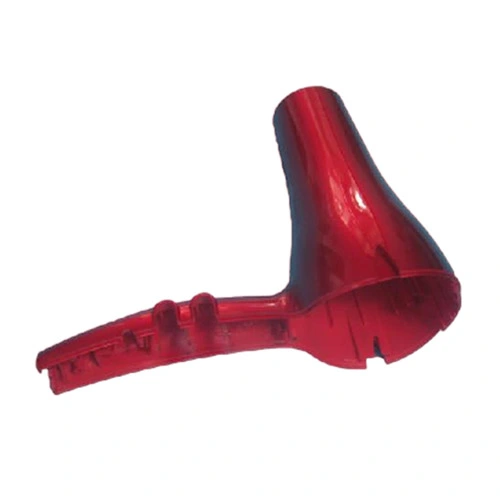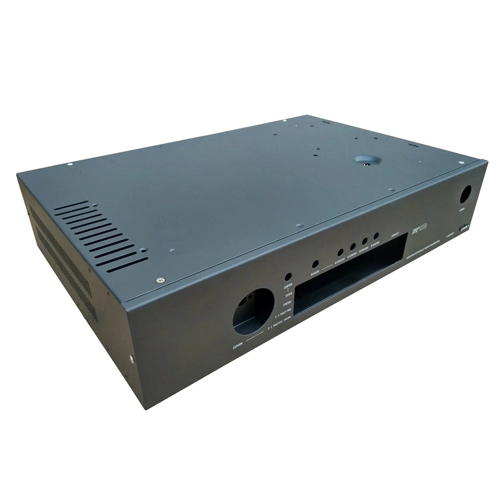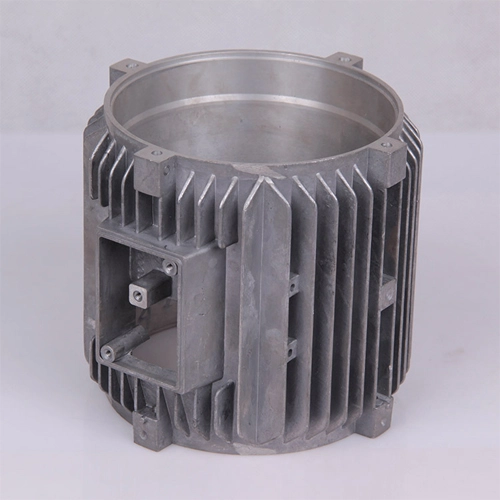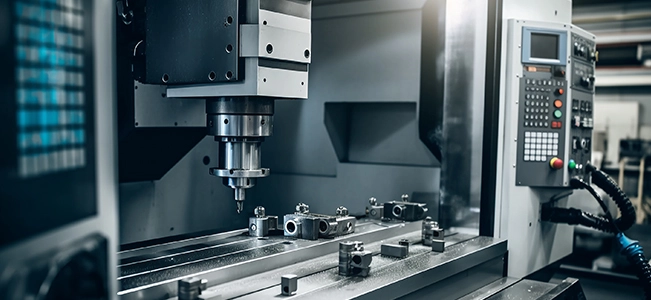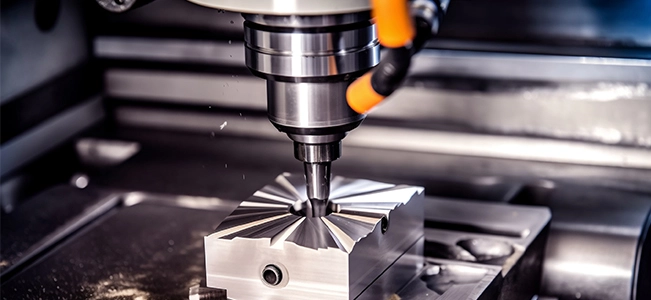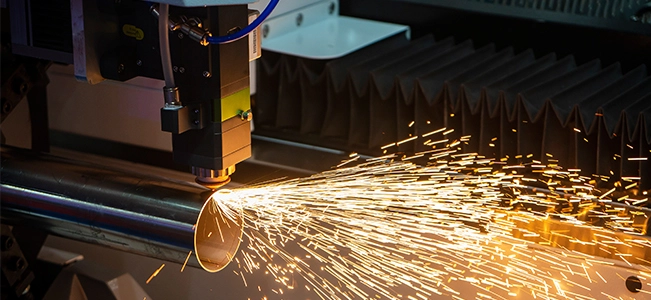All Stamping Metals
Plastic Overmolded Big Head Bolts
Precision in Polymers: Unveiling the World of CNC Machining Plastic
From Design to Delivery: The Journey of Flourish Legend's CNC Appliance Parts
Precision Engineering in Healthcare: Flourish Legend's CNC Machining Medical Parts
Home Appliance Molding Service
Vacuum Casting vs Injection Molding
Top 5 CNC Prototyping Service Providers
Is Titanium Hard to Machine
What is PTFE Plastic?
What Is Vacuum Casting Process?
Is Titanium Easy to Machine
Mastering the Science of Titanium: How Our Machining Titanium Feeds & Speeds Expertise Elevates Your Precision Parts?
How to Identify the Best Stainless Steel Stamping Parts Suppliers for Your Manufacturing Needs?
How to Stamp Aluminum?
How to Calculate CNC Prototyping Cost?
Vacuum Casting vs Vacuum Forming: How to Choose the Right Prototyping Method?
The Evolution of ABS Plastic Machining: Precision Meets Performance
CNC Milling ABS Plastic: Accelerating Innovation in Product Development
How Does MC Nylon Compare to Delrin in CNC Applications?
What Are the Latest Trends in Brass Stamping for 2025?
How Can Brass Stamping Parts Enhance Your Product Design?
Home
Automobile & Transportation
CNC Machining Plastics
Flourish Legend CNC Machining Services
Prototyping
Blog
Common Problems and Solutions in Sheet Metal Machining
CNC Machining ABS
Plastic Injection Molding Materials
All Sheet Metals
Beauty Apparatus Plastic Case
High-Precision Aluminum Alloy Two-Way Connection Handle
Wooden Watch Box
Rust Removal Robot Spare Parts
Stainless Steel Water Pipe Fittings
Stainless Steel Nut Parts
Stainless Steel Bolt
Stainless Steel Machine Taps
Video of 5-axis CNC Machining Process
Home Appliance Industry
FAQ
CNC Machining Metals
Flourish Legend Custom Injection Molding Services
CNC Machining
How to Calculate Mold Shrinkage for Plastic Molds?
CNC Machining PC
Electrolyte Analyzer Plastic Housing
High-Precision Aluminum Alloy Cross Connection Handle
Plastic Remote Control Case
Materials
Services
Robotic Industry
Injection Molding Materials
Injection Molds & Molding
CNC Machining PMMA (Acrylic)
Temperature Contoller Plastic Housing
Precision CNC Turning Service
Injection Molds
How is a Metal Mould Created for a Silicone Rubber Mould?
High-Precision Aluminum Alloy Seat Armrest
Plastic Landline Phone Button
Flourish Legend Rapid Prototyping Services
Application
Video
Flourish Legend Custom Sheet Metal Machining Services
Sheet Metal Fabrication Services
Sheet Metal Materials
CNC Machining POM (Delrin/Acetal)
Smart Multi-Display Medical Equipment Shell
CNC Milling
CNC Prototyping Service
Sheet Metal Forming
Aluminum Stamping
How Much Does CNC Process a Part Cost?
Plastic Lumbar Support
Plastic Phone Holder
Injection Molding Service
Resources
Electronic Industry
Medical Equipment Industry
Metal Stamping Service
Stamping Materials
Printer Plastic Housing 1
Vacuum Casting Service
Sheet Metal Stamping
Stainless Steel Stamping
CNC Machining Nylon
Analysis of the Development Trend and Market Status of China's CNC Machine Tool Industry in 2023!
What are the Technical Applications of CNC Machine Tools?
Trash Can Plastic Shell
Aluminum Alloy High-Speed Rail Luggage Rack
Plastic Wireless Remote Control Key Shell
Flourish Legend Custom Metal Stamping Services
Company
About Flourish Legend
CNC Machining MC Nylon
Multifunctional Beauty Instrument Plastic Shell
Industrial Design
Sheet Metal Press Die
Gold Stamping
Do You Know the Basic Composition of CNC Machine Tools?
Industrial Equipment
Storage Basket Plastic Case
Titanium Pipe Parts
Plastic Gamepad Shell
About Flourish Legend
CNC Machining PVC
CNC Machining Aluminium
Printer Plastic Housing 2
5 Axis CNC Machining Service
Sheet Metal Welding
Brass Stamping
Processing Characteristics of Milling, Summary of 17 Key Points of Milling
Custom Made Fasteners
Washing Dishes Plastic Shell
Plastic Sanitation Handlebar
Company News
CNC Machining PEEK
CNC Machining Stainless Steel
Exhalation Resistance
CNC Bending Services
Silver Stamping
How Do You Calculate the Amount of Melt Glue of an Injection Molding Machine?
Electronic Blender Plastic Shell
Plastic Airfield Damper Housing
Plastic Electronic Painting Board
Industry News
CNC Machining Tool Steels
Expiration Knob
CNC Grinding Service
Copper Stamping
CNC Machining PTFE
What is the Difference Between a High-Speed Injection Molding Machine and an Ordinary Injection Molding Machine?
Hair Dryer Plastic Shell
Air Conditioner Air Outlet Plastic Parts
Plastic Multifunctional Audio Enclosure
Inspiratory Knob Extension
CNC Machining Mild Steels
What are Computer Numerical Control (CNC) Milling Machines?
Shower Head Plastic Shell
Plastic Headlight Housing
Plastic Circuit Board Housing
CNC Machining Titanium
Medical Equipment Plastic Pulley
What are the Types of Plastic Pallet Moulds?
Coffe Machine Plastic Shell
Plastic Bumper Cover
CNC Machining Copper
You Don't Know the Development History of ''Central CNC Lathe'' In China!
What will Happen to the Hydraulic Oil of the Injection Molding Machine and How to Fix it?
Smart Dishwasher Stainless Housing
Stainless Medical Cart
Plastic Engine Bracket
Plastic SLR Camera Front Case
What is a CNC Machine Tool?
Toy Car Plastic Shell
Aluminum Parts
Plastic Engine Exhaust Pipe Housing
Why is the Product Produced by an Injection Molding Machine Very Soft?
Plastic Door Lock Button
Plastic Watch Strap
How to Solve the Porosity Problem in the Production Process of Extrusion Blow Molding Machine?
Plastic Gearbox Housing
Aluminum USB Charging Cable Head 1
Contact Us
Why did the Overseas Mergers and Acquisitions Boom in the CNC Machine Tool Industry Gradually Calm Down?
Plastic Engine Housing
Aluminum USB Charging Cable Head 2
Search Result
Sheet Metal Processing Procedures and Processing Precautions!
Rubber Tires
Copper Wire Household Socket Built-In Connecting Wire
Sitemap
Seven Tips for Mold Processing to Reduce Defects!
Plastic Headlight Inner Shell
Household Copper Socket Plug
404
Flourish Legend Teaches You the Control Software of CNC System and its Working Process
CNC Processing Pays Attention to These Four Items, so that You Can Reduce Loss
Plastic Engine Housing 1
Stainless Steel Laptop Cooler Back Cover
Privacy Policy
Flourish Legend Teaches You the Precautions of CNC Programming
How to Choose a More Suitable Industrial Dehumidification Dryer for Injection Molding?
Plastic Engine Housing 2
Stainless Steel Connector UK50N
Submission Successful!
The First Choice for CNC Product Spare Parts Processing Enterprises-Flourish Legend
Exhaust Pipe Connector
Steel Round Watch Case
The Essential Guide to ABS Milling: Materials, Methods, and More
Taggg
Why so Many People Like Flourish Legend CNC Processing Services?
Aluminum Alloy Bus Handlebar
Rectangular Stainless Steel Watch Case
ABS Milling Techniques: Creating High-Quality Plastic Parts
Search Result Products
Exploring Flourish Legend's ''Intelligent Manufacturing in China'' Road
Aluminum Alloy Radiator
Rose Gold Stainless Steel Watch Case
Unleashing Precision: CNC Machining ABS for Superior Parts
Search Result Others
How to Find a Chinese CNC Factory for Cooperation?
Desktop Computer Aluminum Alloy Radiator Shell
From Design to Reality: CNC Machining ABS for Prototyping
Flourish Teaches You EDM Mirror Electric Discharge Mold Processing Technology, Learn to Become an Expert!
Desktop Computer Stainless Steel Case Shell 1
Ptfe CNC Machining: A Comprehensive Guide
[Dry Goods] Detailed Interpretation of Flourish Legend CNC Machining Center Program G Code and M Code Interpretation.
Desktop Computer Stainless Steel Case Shell 2
Mastering Precision: The CNC Machining Plastic Advantage
【Industry Information】It Is Said That the Five-Axis Machining Center Is Good. Flourish Legend Will Take You to Explore the Advantages of Five-Axis Mac
Engineering Dipstick
Desktop Computer Stainless Steel Case Shell 3
Unveiling the World of Mold Making Materials
Industrial Equipment Gear
Crafting Excellence: Exploring the World of Sheet Metal Custom Fabrication
Industrial Equipment Supports
What is Precision Medical Machining?
Most Popular CNC Machining Parts Manufacturers and Suppliers in China in 2023-Flourish Legend
Stainless Steel CNC Machine Tool Equipment Parts
Desktop Computer Aluminum Speaker Body
Shaping the Future: The Dynamics of CNC Laser Metal
Plastic Tool Case
Aluminum Alloy HDMI Terminal
ABS Plastic Unveiled: A Comprehensive ABS Plastic Information to Properties, Applications, and More
Flourish Legend Teaches You the Most Common Injection Molding Processes in 2023
Aluminum Alloy Motor Housing
The Role of ABS CNC Machining in Prototyping
Unveiling the Profound Benefits of Peek CNC Machining in Advanced Manufacturing
In 2023, China's Mainstream Manufacturing Factories Will Lead the World in Processing and Manufacturing of Flourish Legend CNC
Key Factors to Consider When Purchasing an ABS Milling Machine
Flourish Legend Teaches You Four Things to Pay Attention to in CNC Processing
Safety Measures for Nylon Milling Operations
Factors Affecting Quality and Precision in PMMA Machining
Machining Polycarbonate vs Acrylic
CNC Machining vs Injection Molding
Machining Titanium vs Stainless Steel
How Does Injection Moulding Work?
What Materials Can Be Injection Molded?
What Is Stamping Process in Sheet Metal?
5 Tips for Machining Thin Polycarbonate Sheets
The Ultimate Sheet Metal Fabrication Guide: Materials, Processes, and Cost Optimization Tips
Maximizing CNC Copper Machining Efficiency: Material Selection, Tooling & Best Practices
How to Achieve Flawless Results with CNC Plasma Cutting Stainless Steel
How to Machine Delrin? How to Avoid Common Mistakes When Machining Delrin on a CNC?
Performance and Applications of Processed Polycarbonate Sheets
Why Choose Flourish Legend Custom Brass Stampings?
Why Is It Better to Choose Chinese Suppliers for ABS Precision Machining?
Advantages of Plastic Gearbox Housing
CNC Machining vs Injection Molding: How to Choose the Right Process
How Material Choice Affects Plastic Injection Molding Price?
Is Titanium Difficult to Machine? Insights from a CNC Expert
How Do I Choose a CNC Machining Titanium Manufacturer for My Business?
Custom Titanium Fasteners: 5 Must-Ask Questions Before Ordering
What Is MC Nylon and Why Use It for CNC Machining?
Prototyping
CNC Machining
Injection Molds & Molding
Sheet Metal Fabrication Services
Metal Stamping Service
CLOSE
Search
 English
English  中文
中文  日本語
日本語  한국어
한국어 
